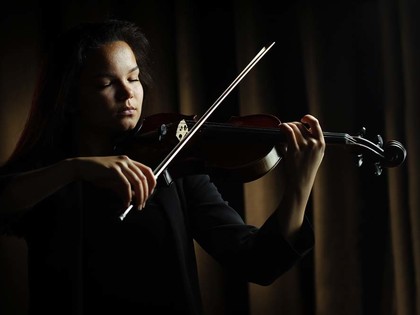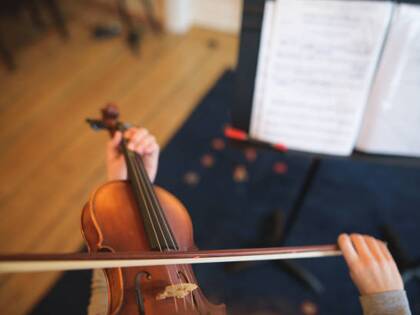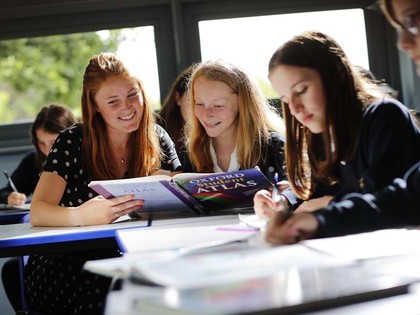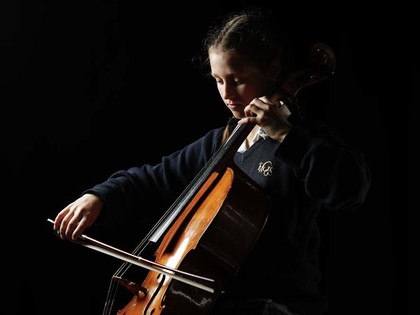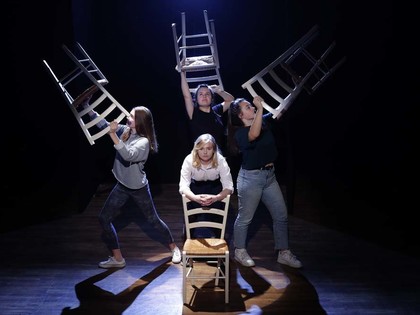The History curriculum at TWGGS provides an inclusive and representative outlook at key historical events. We aim to inspire all pupils by exploring how people from wide ranging cultures have shaped the modern world through their past actions. Pupils are challenged to investigate cause and consequence, change and continuity and to question the impact of key individuals in the past and the results of their actions both in the short and long term.
In History lessons, pupils are encouraged to discuss and challenge ideas and to ask questions to broaden their knowledge and understanding. They are taught to develop the skill of good written communication and learn how to evaluate historical evidence in a critical manner. The curriculum encompasses a study of British, European and World history.
History is a popular choice at GCSE Level and pupils study topics in greater depth and are well prepared for the demands of the examination units. The GCSE course provides a firm grounding in the skills necessary for more advanced study.
Pupils who choose History A Level develop their skills of written and oral expression and research. They are able to use these skills to study more independently and consider the validity of different historical interpretations. Several pupils decide to study History at University.
The department runs extracurricular visits throughout Key Stage 3, such as a trip to the Centre for Experimental Military Archaeology. Sixth Form pupils have the opportunity to undertake a visit to Berlin to augment their study of German history and to attend a seminar at the Wiener Holocaust Library to complement their independent NEA studies.
Throughout Key Stage 3, lessons are varied; from role-play to the analysis of primary evidence, pupils are encouraged to develop their own viewpoints about the past and the way in which it has influenced our modern lives.
|
Year 7
|
The changing nature of political power
This is a very exciting start to History at secondary school, full of colourful characters and events. It is also a period of great change due to the Norman invasion, the introduction of the feudal system and the coming of the Tudor dynasty. There are also major conflicts to be seen in the challenges presented to the power of the monarchy by the church, the nobility and the peasants. It is not too much of an exaggeration to see the period as one of constantly shifting power and intrigue. Students also have the opportunity to explore the world outside of Europe during the Mediaeval period by looking at dynasties in West Africa and the Mughal Empire in South Asia.
-
Pre 1066 England - how can we use sources to learn about the past?
-
The Norman Conquest - what was its lasting significance for England?
-
Mediaeval world - how connected was the Mediaeval world?
-
Mediaeval West Africa - why was it so prosperous?
-
The Tudors and religious changes - How much of an impact did the Tudor dynasty have?
-
Origins of empire & legacy - What was the impact of the collapse of Mughal authority?
|
|
Year 8
|
How did Britain shape the world and how did the world shape Britain?
This year initially follows a period of great conflict in Stuart England, with the nation’s only execution of a monarch. This will have seismic effects in Europe and the world, but the rest of the world will also have an impact on the development of Britain in the early modern period. The year includes the key factors in the development of Britain into a modern nation including the rise of parliament and the end of the power of monarchy. We then move on to address the consequences of trade and industry, including the slave trade and the effects of industrialisation. We will also look at the coming of enlightenment and revolution which shapes everywhere from the Americas to the whole of continental Europe.
-
Civil War and Cromwell - what can we learn about 17th century politics?
-
Enlightenment and revolution - how does this represent a shift in Europe?
-
Industrial revolution - how were people’s lives revolutionised?
-
Slave trade and abolition - how were societies impacted?
-
Russian Revolution - was Russian society transformed?
-
Votes for women - what was the lasting impact on British politics?
|
|
Year 9
|
Conflict and Cooperation
The clash between democracy and dictatorship was a key aspect of the last century and, in this year, pupils study the global conflicts that have shaped the modern world. We also investigate issues that still challenge the world we live in today, including the rise of the United States and the way in which 20th century migration shaped modern Britain.
-
WW1 - how total was the war?
-
USA 1920s - to what extent was it a ‘Golden Age’?
-
WW2 and the Holocaust - how has this transformed the modern world?
-
Decolonisation - how similar was it throughout the British Empire?
-
Civil Rights - how did the movement sweep across the USA?
-
Immigration and the nation - how has this impacted modern Britain?
|
Edexcel specification for GCSE History Our specification allows the opportunity to study modern history through looking at Nazi Germany and the Cold war. It also allows the study of aspects of British History by looking at Elizabethan England, the First World War and the development of Medicine and Health Care since the Middle Ages. The course combines International and Political History with Social History and the History of Science. All those who study History learn the necessary knowledge and key historical skills during the course.
We use a variety of text, audio-visual and electronic resources to develop key historical skills. There is an emphasis on understanding the actions of individuals and analysing areas of historical debate and controversy.
There are three examination papers, each one includes a mixture of shorter questions, paragraphs and more extended essay-style questions.
|
Paper 1
|
British Thematic Study with Historic Environment
1 hour 15 minutes
52 marks (16 for the historic environment, 36 for the thematic study)
30% of GCSE
Section A: Historic environment (10%). Shorter source-based questions on the Western Front, focusing on the injuries of soldiers and their treatment as well as life in the trenches.
Section B: Thematic study (20%). Questions on changes in medicine and health care, c1250 to present. Topics include:
- Religion and the Black Death
- William Harvey and the circulation of blood
- Florence Nightingale and nursing
- Surgery in the 18th century
- Cholera in the 19th century
- Fleming’s discover of penicillin
|
|
Paper 2
|
Period Study and British Depth Study
1 hour 45 minutes examination
64 marks (32 for the Period Study, 32 for the British Depth Study)
40 % of GCSE
Section A: Period Study (20%)
Superpower relations and the Cold War 1941-1991
This involves an overview of the key events in the rivalry between Russia and America that often came close to the outbreak of World War Three. We study the nuclear arms race, the Berlin Wall and the Cuban Missiles Crisis. We also look at key figures such as Stalin, Truman, Kennedy, Khrushchev, Reagan and Gorbachev.
Section B: British Depth Study (20%)
Early Elizabethan England
We study the Virgin Queen, Mary Queen of Scots, the Spanish Armada, Francis Drake and ordinary life in the 16th century. Questions are on causes of changes in Elizabethan England.
|
|
Paper 3
|
Modern Depth Study
1 hour 20 minutes examination
52 marks 30% of GCSE
Weimar and Nazi Germany 1918-1939
We study Hitler’s rise to power and the nature of life in Nazi Germany. Questions are on sources that are provided in the examination and views of Hitler’s Germany.
|
Edexcel Specification for A Level History Many people choose History for the good reason that they enjoy it! It should be considered as a choice at A Level because of its relevance and because the variety of skills which it fosters makes it a valuable base for many careers and higher education courses. Pupils who study History have access to a wide range of career and higher education opportunities. Careers which demand an element of historical study include teaching, conservation and archaeology. Careers where employers view History as a useful qualification include architecture, law, broadcasting, journalism, the performing arts, accounting and business management.
It is not a requirement that pupils have studied History at GCSE in order to take A Level, however pupils should have achieved a good grade in at least one humanities subject.
|
Paper 1
|
Breadth Study with interpretations: 'Russia 1917-91: from Lenin to Yeltsin'
2 hours 15 minutes written exam
30% of the A Level
Two sections
A: one breadth essay
B: one breadth essay
C: one interpretations question
|
|
Paper 2:
|
DEPTH STUDY: The German Democratic Republic 1949-90
1 hour 30 minutes written exam
20% of the A Level
Two sections
A: one source question
B: one depth essay
|
| Paper 3 |
Themes in breadth with aspects in depth: Rebellion and disorder under the Tudors, 1485-1603
2 hours 15 minutes written exam
30% of the A Level
A: one source question
B: one depth essay
C: one breadth essay
|
|
Non-examined assessment (NEA)
|
The focus of the pupils' NEA is selected by the school, rather than prescribed by Edexcel. The topic studied is the extent to which the Holocaust was a long term plan, and will require students to study a variety of historical interpretations as well as incorporating their own contextual knowledge. There will be a visit to the Wiener Holocaust Library for an expert-led seminar as well as a look around the Holocaust exhibition at the Imperial War Museum.
20% of the A Level
A 3000-4000 word essay, which is an independently researched enquiry on historical interpretations.
|




